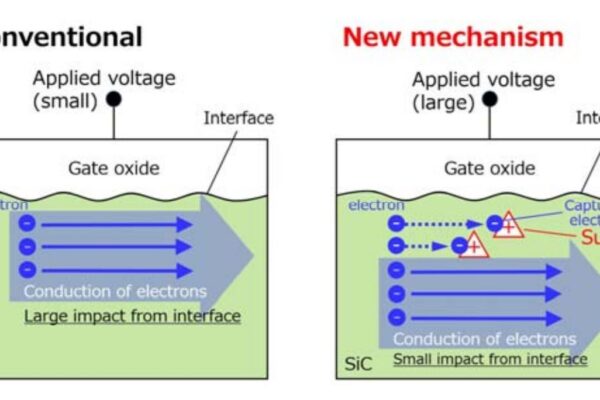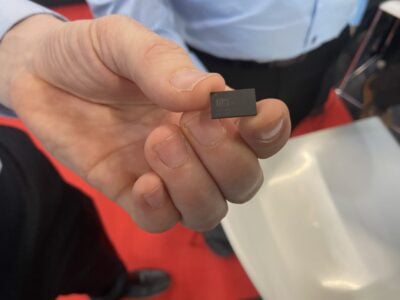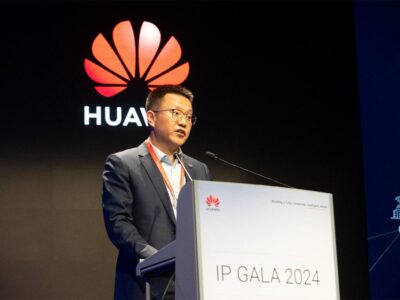
Mitsubishi boosts reliability of silicon carbide devices
The new mechanism shows that sulfur beneath the interface of gate oxide and SiC captures some of the electrons conducting in the device’s current path, which increases the threshold voltage without changing the device’s on-resistance. The mechanism is expected to lead to more reliable power electronics equipment offering superior tolerance to electromagnetic interference.
In the research, Mitsubishi Electric handled the design and fabrication of the SiC power semiconductor devices and analysis of sulfur’s capture of electrons in the current path, while the University of Tokyo handled measurement of electron scattering.
Until now, it had been assumed that compared to conventional nitrogen or phosphorus, sulfur is not a suitable element to supply electrons for current conduction in SiC power semiconductor devices. The team focused on a different property of sulfur, that sulfur in SiC inherently tends to capture electrons. Confirmation of this property was the basis of developing the new mechanism for SiC power semiconductor devices.
A proper quantity and distribution of sulfur in the mechanism’s SiC blocks electrons near the interface to a certain extent and thereby increases threshold voltage without impacting on-resistance. A suitable atom offering such an electrical property has been strongly sought to realize devices that are not prone to malfunctioning due to the effects of external electromagnetic noise. The new mechanism is more reliable in this regard than conventional mechanisms and still retains low on-resistance.
Mitsubishi’s Advanced Technology R&D Centre says it will continue refining the design and specifications of its SiC metal-oxide-semiconductor field-effect transistor (SiC MOSFET) to further enhance the reliability of SiC power semiconductor devices.
 If you enjoyed this article, you will like the following ones: don't miss them by subscribing to :
eeNews on Google News
If you enjoyed this article, you will like the following ones: don't miss them by subscribing to :
eeNews on Google News




